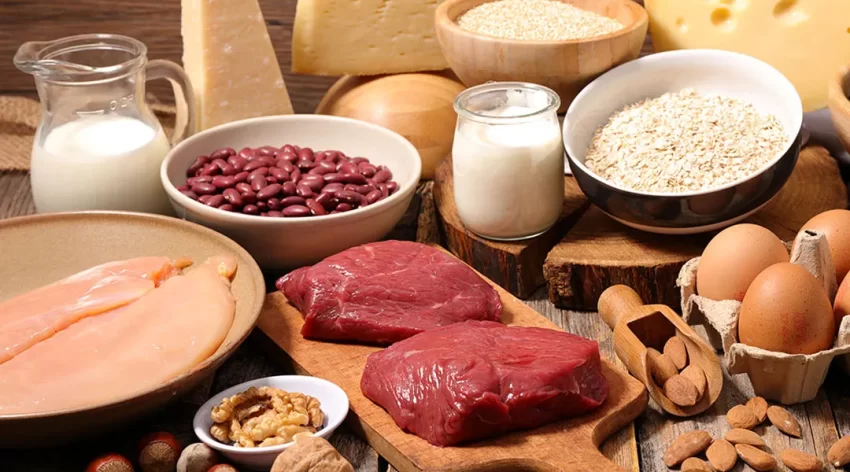If you want to gain muscle, you've probably heard that protein is key. However, there are many questions about how much to consume, whether it's better in large quantities or spread out throughout the day, and whether supplements are necessary.
In this article, we will explain to you How much protein do you really need? to maximize muscle gain, how to distribute it, and what happens if you don't consume enough or overdo it.
Why is protein key to gaining muscle?
Protein is the essential macronutrient for repair and build muscle tissue after training. When you train with weights, you generate micro tears in muscle fibers, and the body needs amino acids (from protein) to repair them and make them bigger and stronger.
In addition, adequate protein consumption maintains a positive nitrogen balance, which means your body has enough amino acids available to build muscle instead of breaking it down.
How much protein do you need per day to gain muscle?
Recommendations vary depending on your activity level and body composition, but studies have found that:
- Sedentary people: 0.8g per kg of body weight.
- People who strength train: 1.6 – 2.2g per kg of body weight.
For example, a person of 75 kg who strength trains, needs to consume between 120g and 165g of protein per day. Likewise, if you are in caloric deficit (wanting to lose fat while maintaining muscle), it may be helpful to approach a high range (2.2 – 2.5g per kg of weight) to minimize muscle loss.
How much protein per meal is effective?
The body does not store protein in the same way as carbohydrates and fats, so the best strategy is to spread your consumption throughout the day. Divide the daily total into 4-6 meals helps keep protein synthesis active throughout the day. It has been shown that 20-40 g of protein per meal is enough to maximize the results.
Example of distribution for someone who consumes 160 g of protein daily:
- Breakfast: 40 g
- Lunch: 35 g
- Snack: 30 g
- Dinner: 40 g
- Night snack: 15 g
What happens if you don't eat enough protein?
Not meeting your daily protein requirement can significantly affect your progress in the gym. Some consequences are:
- Loss or stagnation in muscle growth.
- Slower recovery after workouts.
- Increased fatigue and poorer performance in the gym.
- Difficulty maintaining strength and body composition.
Can too much protein be harmful?
There is a myth that consuming too much protein can damage the kidneys, but In healthy people there is no evidence that high intake causes kidney problems..
However, too much protein can not translate into more muscle if there is no adequate stimulus with training. In addition, it can generate excessive satiety, reducing overall caloric intake, which is not ideal if you are looking to gain muscle mass.
Recommended protein sources
It is important to prioritize High quality and bioavailable sources, since not all proteins are the same. animal sources such as chicken, lean meat, fish, seafood, eggs, dairy and whey protein are highly bioavailable and comprise the complete profile of essential amino acids.
On the other hand, the vegetable sources (legumes, tofu, tempeh, quinoa, nuts, vegetable protein powder), can be deficient in certain amino acids, so combining several sources improves their quality.
Is it necessary to supplement with protein powder?
Protein powder It is not mandatory, but it can be helpful to reach your daily requirements more easily.
When to use protein powder:
- If you have difficulty reaching your daily intake with real food.
- If you need a quick and practical post-workout option.
- If you are looking for a low calorie or low fat protein source.
Conclusion
To gain muscle mass effectively, you need consume between 1.6 and 2.2 g of protein per kg of body weight a day, distributing it over several meals to optimize protein synthesis.
Not getting enough can limit your muscle growth and recovery, while too much doesn't necessarily translate into more muscle. Prioritize high-quality sources and use supplements if you need them to meet your daily requirements.
